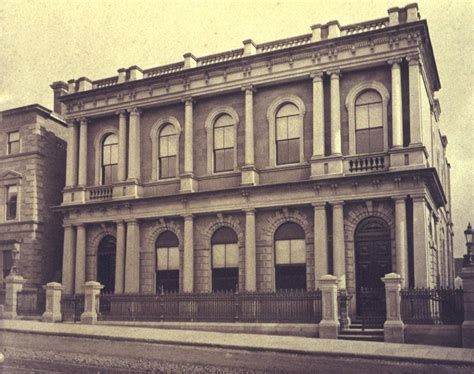Banking houses have played a pivotal role in shaping the course of world history, facilitating the flow of capital and enabling economic growth. These institutions emerged in Europe during the Middle Ages and have since evolved into the complex and sophisticated financial institutions we know today.

Origins of Banking Houses
The origins of banking houses can be traced back to the merchant families of Italy and Germany in the 12th century. These merchants engaged in money lending, currency exchange, and other financial transactions. As their wealth and influence grew, they established permanent offices and hired staff to handle their operations.
Rise to Prominence
By the 15th century, banking houses had become well-established in major European cities such as Venice, Genoa, and Augsburg. They played a crucial role in financing trade, industry, and government activities. The Medici family of Florence, for example, was one of the most influential banking houses of the Renaissance period.
Global Expansion
As European empires expanded overseas, banking houses followed suit. They established branches in colonies and trading posts, facilitating the flow of capital and trade between different parts of the world. The Bank of England, founded in 1694, became one of the most important banking houses in the world, playing a pivotal role in the development of the British Empire.
Economic Impact
Banking houses have had a profound impact on economic growth and development. They:
- Provided loans to businesses and individuals, enabling them to invest and expand their operations.
- Facilitated trade by providing credit and currency exchange services.
- Funded government projects, such as infrastructure development and military campaigns.
Social Impact
Banking houses also had significant social and political implications. They:
- Accumulated wealth and power, influencing the decisions of rulers and governments.
- Shaped the development of economic policies and regulations.
- Provided opportunities for social mobility, as wealthy merchants and financiers could rise to positions of prominence.
Historical Examples of Banking Houses
- Barings Bank (UK): Founded in 1762, Baring Bank was one of the most powerful banking houses in the world in the 19th century, financing major infrastructure projects and government activities.
- Rothschild Family (Germany): The Rothschild family established a network of banking houses across Europe in the 18th and 19th centuries, playing a key role in financing wars and industrial development.
- J.P. Morgan & Co. (USA): Founded by John Pierpont Morgan in 1871, J.P. Morgan & Co. became one of the most influential banking houses in the United States, financing major industrial ventures and railroads.
Evolution and Modernity
Banking houses have undergone significant evolution over the centuries. Today, the term is typically used to refer to large, diversified financial institutions that provide a wide range of financial services, such as investment banking, commercial banking, and asset management.
Key Characteristics of Modern Banking Houses
- Size and scale: Modern banking houses are typically large, multinational institutions with assets in the trillions of dollars.
- Range of services: They offer a comprehensive suite of financial services, including lending, investment banking, and wealth management.
- Global reach: Banking houses have a presence in major financial centers around the world, facilitating cross-border transactions and investments.
Regulation and Oversight
Banking houses play a critical role in the financial system, and as such, are subject to extensive regulation and oversight. Governments implement regulations to ensure the stability and integrity of the financial system, protect consumers, and prevent financial crises.
Impact on Global Economy
Banking houses have a profound impact on the global economy. They:
- Provide credit: Banking houses are the primary source of credit for businesses and governments, enabling economic growth and development.
- Facilitate trade: Banking houses provide the infrastructure for international trade by facilitating currency exchange and clearing transactions.
- Manage risk: Banking houses help businesses and investors manage risk through various financial instruments, such as derivatives and insurance.
Future of Banking Houses
The future of banking houses is uncertain, as the financial industry is undergoing rapid technological change. However, the core functions of banking houses, such as providing credit, facilitating trade, and managing risk, are expected to remain essential.
Conclusion
Banking houses have played a pivotal role in shaping world history, enabling economic growth, fostering innovation, and influencing political and social developments. As the global economy continues to evolve, banking houses will continue to adapt and play a critical role in the financial system.
